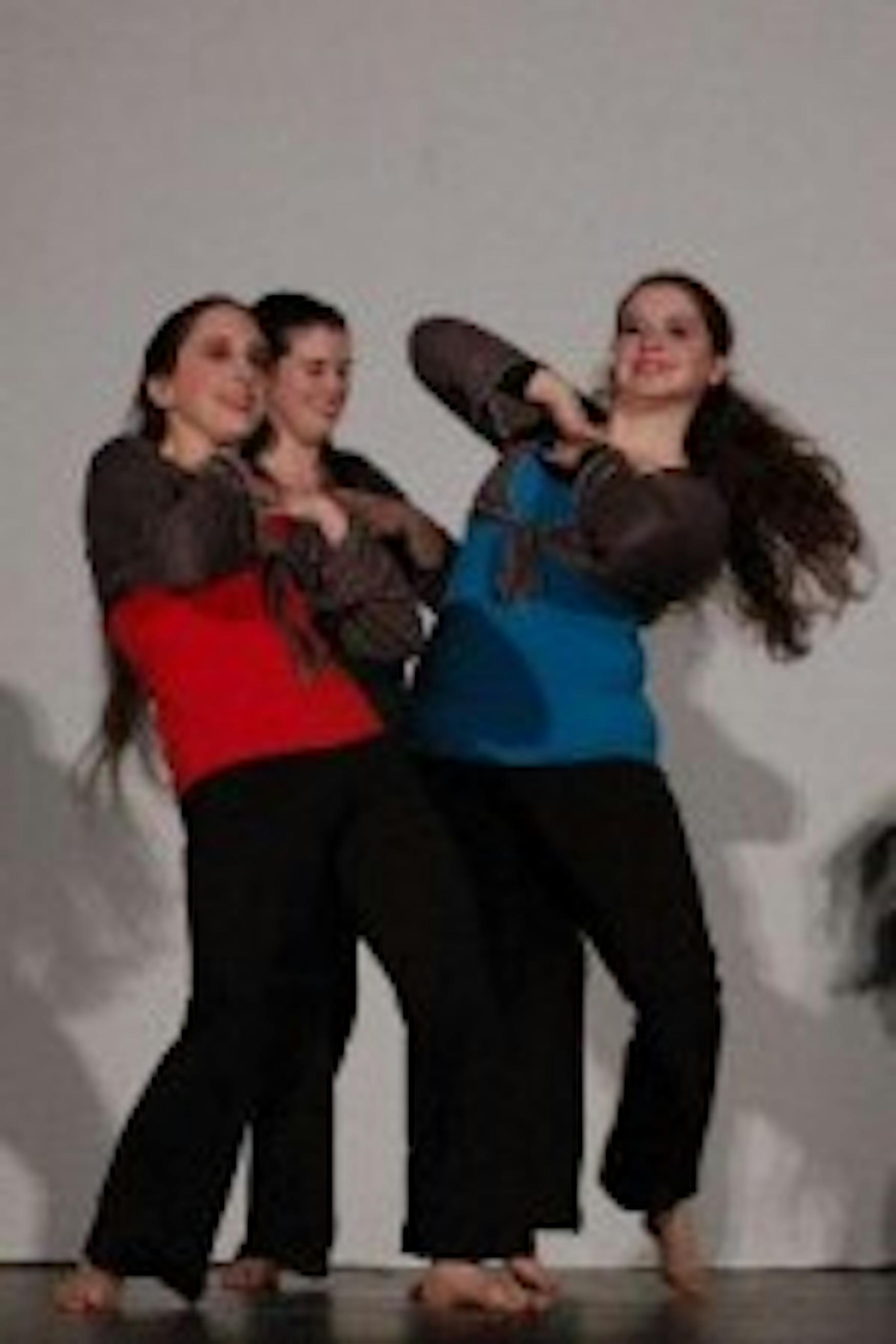Cultures unite to call for peace
Corrections appended"Build bridges between cultures through music": Mochila's mission statement encompasses the driving force behind the Musika Rox event well, though two words should be added at the end of that statement: "and dance." Musika Rox, combining the words meaning music in Hebrew and dance in Arabic, is a union between B'yachad, Brandeis' semi-professional Israeli dance troupe, and the aforementioned Mochila, a student-formed Arab jazz fusion band. It all started when B'yachad president Marnina Cowan '10, dissatisfied with the low turnout at B'yachad's annual show, Standing O!, approached the founder and leader of Mochila, Mohammed Kundos '10, to put together something that had never been done before at Brandeis: a joint project between an Israeli and a Palestinian group. The months of work toward this event finally paid off Saturday night, when B'yachad, Mochila and other groups took the stage in an amazing and poignant call for peace.
The show kicked off with a performance by B'yachad called "Machol Yonatan" (Dance of Jonathan), a fast-paced dance that featured forceful, drumline-esque music and choreography. This was followed by Mochila's smooth and relaxed "Blossoming." After that was a guest performance by another Brandeis dance group, Adagio, which performed "Why I'm Talking To You," highlighting the universality and the "super normality" of falling in love regardless of culture. Next was a B'yachad dance, "Shalom V'ahava" (Peace and Love), an upbeat number that actually had the audience clapping along. Mochila was up again after that with "Ghaz'l" (Flirtation), a piece based upon ghazal poetry, a centuries-old form that originated in Arabia. It was at this point that Kundas began playing the oud, which made an appearance in almost every Mochila performance of the night. The pear-shaped stringed instrument produced an original, distinct sound that was one of the most memorable parts of the entire show. This is where the group's unique "Arab jazz" style was first displayed, and the two forms blended seamlessly to make a single, unified sound.
Music took a back seat for the next part as spoken-word poet Kaamila Mohamed '11 took the stage to deliver a powerful performance using only words with no music or rhyme. This was followed by "Tutim" (Strawberries), a B'yachad-choreographed open dance with an upbeat electronic soundtrack celebrating the newness of each day and the prospect of leaving past conflicts behind. B'yachad returned after this for "Od Yavo Shalom Aleinu" before segueing back to Mochila. Its song "Eternal Spring" shifted the show's focus from the Middle East to Colombia, which Kundos has visited. Inspired by the refugees trapped between the government, guerillas and drug dealers, the song reinforced the cross-cultural ideal that Musika Rox embodied. B'yachad came on stage again for "Arim Roshi" (I Will Raise My Head), which was followed by Ibrahim Miari of the Acco Theater Center in Israel, who performed a Sufi Muslim prayer dance that was one of the show's standout performances. The dance itself was rather simple; it consisted of Miari performing the traditional Sufi whirling meditation, but that didn't take away from its power. Watching the performance brought a certain sense of calm, as the clockwork movements of Miari's feet combined with the fluid motion of his robe made him seem entranced, fully enveloped in the whirling with no outside distractions.
B'yachad then performed the upbeat and modern "Haruach Teshane Et Kivuna" before turning things over to Mochila for the song "Clear Fog." With that, the two groups joined for the finale, "Arabic Coffee," where B'yachad accompanied a Mochila song with an original dance. This was the night's culmination: two distinct cultural groups coming together for a single performance. Here was the entire point of Musika Rox, and both groups conveyed it perfectly; unique music coupled with expert choreography. Two groups working for one goal.
The message of intercultural peace went beyond the performances. The walls of the Levin Ballroom were covered with images of people and organizations that were working for peace between Israel and Palestine.
There was also the chance for some audience participation: Mochila CDs were being sold, and 50 percent of the profits from album sales would support disaster relief in Haiti and Chile, and another portion would go toward Kundos' project to create a group similar to Mochila made up of Haitian musicians, the grant for which is currently being processed by the government. Audience members could also contribute designs for a "Culture Quilt" that would be donated to a homeless shelter. Musika Rox was a display of culture and activism, or "peace through performance." Though it is unknown whether or not it will be an annual event, it has definitely earned the right to become a Brandeis tradition.
Editor's note: Justice staff members Wei-Huan Chen and Camille Dolfen participated in Musika Rox.
Corrections: The original version of this article incorrectly stated that Marnina Cowan was dissatisfied with low turnout at Culture X. The original version of this article also incorrectly stated that Mohammed Kundos hopes to bring a group of Mochila members to Haiti.



Please note All comments are eligible for publication in The Justice.